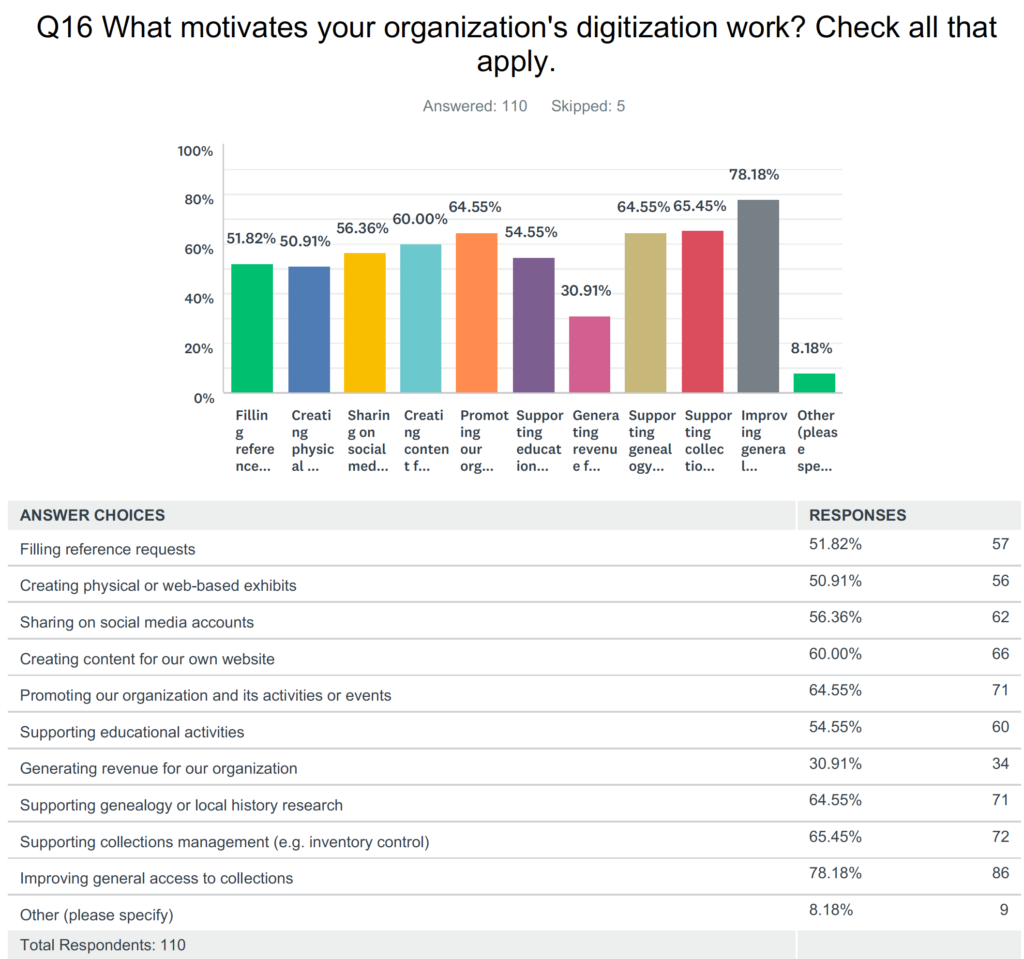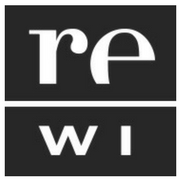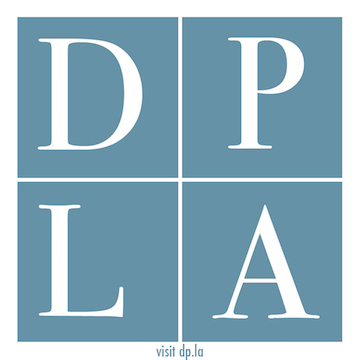As we continue to compile tools and resources for local history organizations to tackle digital readiness, we keep returning to one of the foundational questions of this initiative: why digitize? What motivates historical societies and public libraries to digitize their collections?
During the 2019 planning grant that inspired our work, 85 Wisconsin history organizations answered that question. Participating in community conversations and answering a wide-ranging survey, cultural heritage organizations gave the following reasons for their digitization initiatives:
- Improved access
- Organizational promotion
- Revenue creation
- Internal collections management
- Reference requests for genealogy and local history
- Preservation of analog materials
- Expanding outreach
- Increasing educational opportunities
- Creating content for web or social media

Although we conducted this survey prior to the onset of COVID-19, the demand for digital collections has grown exponentially over the last year. Recollection Wisconsin saw page views double in 2020, and individual item views increased by 134%. In this changed world, online public access to digital history is more important than ever, especially for students and educators alike.
Building a Digital Readiness Community of Practice is collating a resource directory and toolkit for local history organizations to utilize in their digital project planning. Many of these tools and resources already exist as part of the Digital Projects Tookit. In particular, the “Why Digitize?” section of the Project Planning page echoes what we heard from Wisconsin’s local history organizations in 2019.
As we mentioned last month, one of the tools we’re building is a comprehensive Digital Readiness Glossary. Sourced from our own organizational experiences, the Society of American Archivists, the American Association for State and Local History, and more, this glossary will provide a thorough and helpful directory of terminology, jargon, and acronyms. This resource is one way we hope to foster an inclusive, equitable, and welcoming environment by reducing the barrier to practice and understanding. We’re looking forward to sharing this resource with you all next month!
What’s next?
- We’re excited to begin planning a key component of our project — digital fairs! We’re planning four half-day virtual events this summer to include Q & A sessions, breakout rooms for discussion, guest speakers, and time to work through attendees’ project planning questions. Keep watching this space for details!
- Check out our most recent Digital Readiness Case Study! The Lake Mills Aztalan Historical Society shared their ongoing journey to digitization with us, and provided several key considerations for the digital project planning.
Are you interested in learning more about digital readiness and connecting with other local history practitioners engaged in digital work? Join our listserv! Visit digistew and click “Ask to join group” at the top of the page to be added to this listserv. Visit Digital Readiness Community of Practice for more information about this project.
Building a Community of Practice for Digital Readiness in Wisconsin is supported by an Archives Collaboratives Implementation Grant from the National Historical Publications and Records Commission (NHPRC), the granting arm of the National Archives. Read the full implementation grant narrative submitted to NHPRC.



You must be logged in to post a comment.